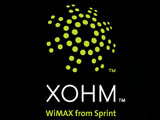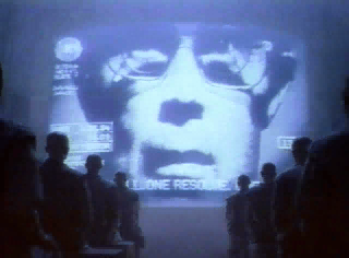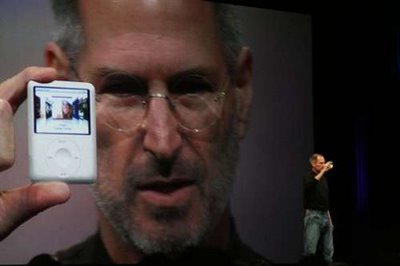 In three years, internet access is going to be so pervasive that our modern expectation of finding a wifi hotspot here and there will seem quaint. Sprint’s new WiMax service (dubbed Xohm) promises cable/dsl-level access speeds anywhere, and it will be rolled out in three test markets in spring 2008. Ars Technica went for a cruise on the Chicago River with Sprint and Motorola to test drive it, and were wowed:
In three years, internet access is going to be so pervasive that our modern expectation of finding a wifi hotspot here and there will seem quaint. Sprint’s new WiMax service (dubbed Xohm) promises cable/dsl-level access speeds anywhere, and it will be rolled out in three test markets in spring 2008. Ars Technica went for a cruise on the Chicago River with Sprint and Motorola to test drive it, and were wowed:
The results were impressive. The first time we ran the test, we got 2425Kbps down and 1474Kbps up with a 99ms ping, with the S.S. Summer of George cruising down the river 30 feet below street level. We hit Speedtest again after the boat tied up, and the results were even better: 3229Kbps down and 1500Kbps up with a 70ms ping.
Both the performance and experience were far superior to Verizon’s EV-DO service. The absolute best I was able to squeeze out of EV-DO was 1253Kbps/674Kbps with a 179ms latency—and that was a best-case scenario. Speeds were more typically in the 500-700Kbps range.
Speed aside, the browsing experience was much different than any other mobile broadband I’ve used. Unlike other wireless services, which feel “laggy” and offer a markedly different experience than a wired connection, the WiMAX demo was more akin to DSL and cable. Latency was good, and, as the Speedtest.net number indicated, speeds were comparable to a decent DSL connection.
What is even more exciting about this is that Xohm will be priced to compete against cable and dsl, and will also be more open about service contracts etc than traditional cell phone-based access plans:
Unlike 3G wireless services, which are targeted at mobile users needing a quick broadband fix, Sprint plans to take on the DSL/cable duopoly with Xohm. Sprint spokesperson John Polivka told me that pricing would be competitive with DSL and cable, although the exact numbers have not yet been determined.
There’s also a strong open access component to Xohm. Although consumers will be getting the service from Sprint or Clearwire, they’ll be able to use the hardware and applications of their choice on the network. Polivka said that there wouldn’t be fixed-length, cellular-style contracts either. Instead, consumers will be able to subscribe to the service for as long as they want, using hardware that they purchase themselves.
However, thats just scratching the surface. The first products using WiMax will mostly be laptop cards, but the technology is being designed with the embedded market in mind. That means cell phones, music players, digital cameras, printers… pretty much any consumer device could in principle have perpetual access to the Net. How this will transform user interfaces and usage is anybody’s guess; it’s a truly transformative technology.

 In three years, internet access is going to be so pervasive that our modern expectation of finding a wifi hotspot here and there will seem quaint. Sprint’s new WiMax service (dubbed
In three years, internet access is going to be so pervasive that our modern expectation of finding a wifi hotspot here and there will seem quaint. Sprint’s new WiMax service (dubbed 

